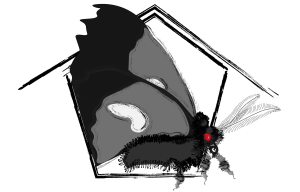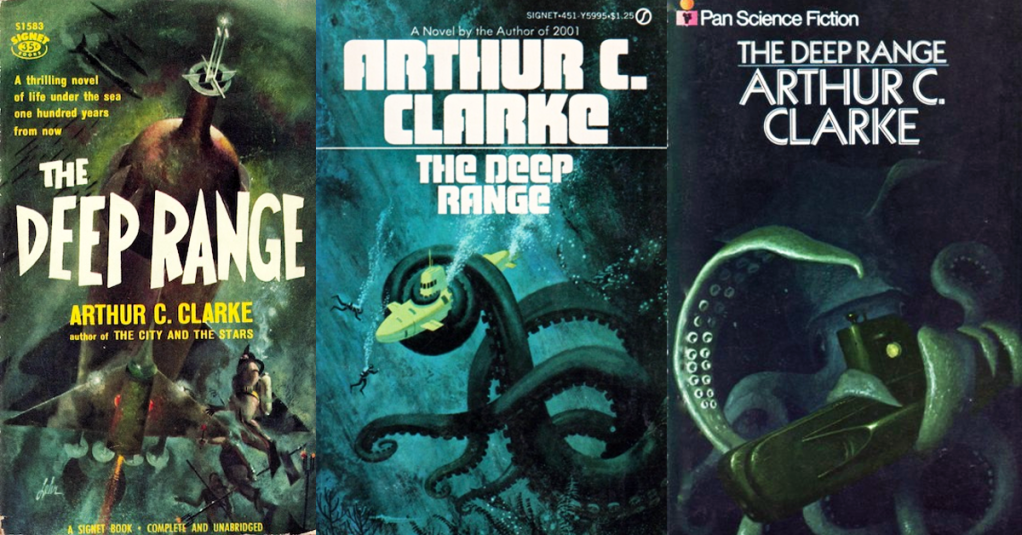
Typically for Clarke, a complex, humane, and wistful novel. Seasoned spaceman Walter Franklin suffers from extreme astrophobia after a space walk gone awry. He’s reassigned to the Bureau of Whales, which manages the world’s oceans (and ranches the world’s whales) in order to feed humankind. The adjustment and reintegration period is somewhat difficult. During his training, after suffering a psychotic break, Franklin attempts suicide (via a doomed excursion in a minisub), but eventually he recovers. His first family stays on Mars, meaning their paths will not cross again, since his children developed in low gravity conditions and cannot return to Earth, while Franklin’s phobia ensures he must remain terrestrially bound: “To his son, he willingly bequeathed the shoreless seas of space. For himself, the oceans of this world were sufficient.” Much of the novel involves the Bureau’s hunt for a giant squid nicknamed Percy, as well as Franklin’s parallel fascination with an ever-elusive ocean cryptid (possibly some kind of sea serpent), which he never manages to capture or even properly confirm. One suspects this hauntological metaphor is central to the text: the beguiling presence/absence of something living, mysterious, and strange, the very irresolution of which in no small way produces and sustains its appeal. Make what you will of the fatal consequences (for Franklin’s closest friend) of searching after this spectral macguffin. At what cost, the hunting of a snark? By the end of his career, Franklin has become Director of the Bureau of Whales, and the novel changes its focus from accommodating oneself to earthly conditions (however ironically displaced by Franklin’s fundamentally thalassic orientation) to interrogating animal rights in relation to humanity’s Gattungswesen. On the one hand, this seemingly abrupt shift reminds one of the theological dialogues about abortion that take over the latter part of A Canticle for Leibowitz (1959). On the other hand, Clarke’s concern regarding the moral standing of the human species (especially when viewed from the putative Outside) is perennial in his work: “Within a century or so, we will literally be going outside the solar system. Sooner or later we will meet types of intelligent life much higher than our own, yet in forms completely alien. And when that time comes, the treatment man receives from his superiors may well depend upon the way he has behaved toward the other creatures of his own world.”


Leave a comment